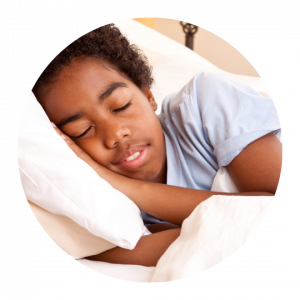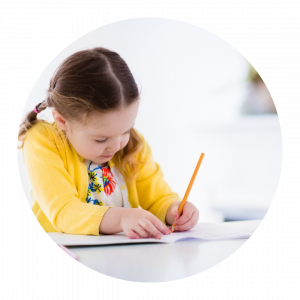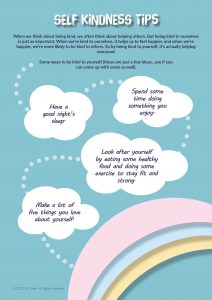Self-Kindness Tips for Children
10 ways you can be kinder to yourself!
Being kind is the best thing you can be. But sometimes we can focus a lot of our energy on doing things for others and forget about being kind to ourselves. Just like a car needs fuel to run, we need to fill ourselves up with kindness in order to be the best we can be. All that kindness inside you will spill out into the world and help you be kind to people too.
Being kind to ourselves not only means we have more enthusiasm to help others, but it has scientific benefits, too. Practising self-kindness can slow down our heart rate, helping us feel calmer and even supporting our immune system! Sometimes we’re far more critical of ourselves than we would be of other people; just remember that mistakes are marvellous and help us to learn – and no one’s perfect!
So, here are 10 self-kindness tips to encourage you to be the best version of yourself.
1. Have a good night’s sleep
It’s suggested that primary-school children get 9-11 hours of sleep a night. When we have a good night’s sleep, our bodies can repair themselves and get us ready for the next day. It also makes us less irritable – we can be even kinder!
2. Kindness Meditation
By meditating, we reduce our stress levels and create a more positive headspace. You can also do it anywhere! Meditating encourages our bodies to fully relax, meaning we can think clearer and allow our bodies a break. Download our free guided meditations here
3. Move your body
When we exercise, it releases wonderful chemicals in our body that help us feel happier. So move your body in whatever way you can!

4. Practise Gratitude
Practising gratitude means that we take time to reflect on the things we’re thankful for. Whether that’s a helpful friend or a good day at school, being thankful helps us to become more positive people who can show more compassion.
5. Do something you love
Make sure, at least once a day, you have some time set aside to do something you love. Whether that’s reading, drawing, music or sports, it’s important to help you feel happy and relaxed.
6. Ask for help
It can sometimes be difficult to ask for help, especially if it’s something we feel we should be good at or be able to do alone. There’s no shame in asking for help, though – we all need support from time to time. It can help you feel better and accomplished, and the other person will feel better knowing they’ve done something kind.
7. Note down what you love about yourself
Making a list of the things we appreciate about ourselves can help us feel happier. It might be that you have a lovely smile, that you’re a good friend, or that you can run super fast! Whatever it is, write it down and read it from time to time to remind yourself just how amazing you are.

8. Believe in yourself
It’s important to know you can achieve your dreams and the things you work hard for. Allow yourself to be inspired and you can inspire others!
9. Use the power of YET!
No one is good at everything straight away. If you’re struggling with something, try to think of the word ‘yet’. I’m not good at singing… yet. I can’t solve that puzzle… yet! See what happens? That one little word helps you to believe that you can achieve what you set your mind to.
10. Practise speaking positively
Changing the way we think and talk to ourselves can make a big difference to how we feel. For example, instead of saying ‘I failed and I’m embarrassed’, try and say, ‘I tried my best and I was brave’. Speaking kindly to yourself can help you feel calm, happy and more positive.

Download our Self-Kindness Poster as a little reminder to have around the classroom!
You can find more free teaching resources here.

